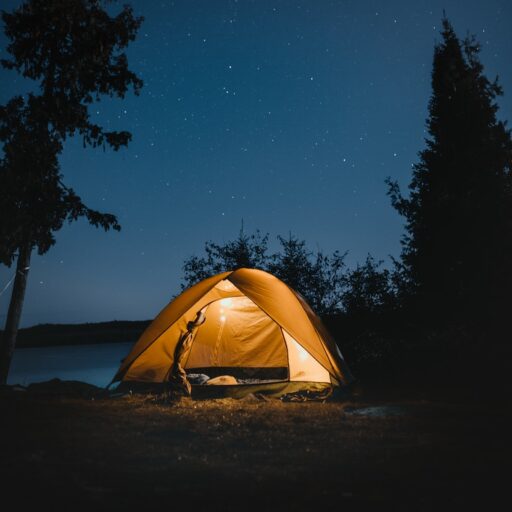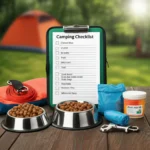Support our educational content for free when you purchase through links on our site. Learn more
5 Essential Things to Bring on a Hike [2023]
Quick Answer: When going on a hike, it’s essential to bring the following 5 items: a backpack, proper footwear, navigation tools, a first aid kit, and plenty of water. These items will ensure you have a safe and enjoyable hiking experience.
Table of Contents
- Quick Answer
- Quick Tips and Facts
- Background
- 1. Backpack
- 2. Proper Footwear
- 3. Navigation Tools
- 4. First Aid Kit
- 5. Water
- FAQ
- Conclusion
- Recommended Links
- Reference Links
Quick Answer
When going on a hike, it’s important to bring the following 5 essential items:
- Backpack: A sturdy backpack is crucial for carrying all your gear and supplies.
- Proper Footwear: Invest in a good pair of hiking boots or shoes to protect your feet and provide traction on various terrains.
- Navigation Tools: Bring a map, compass, or GPS device to navigate your way on the trail.
- First Aid Kit: Be prepared for any minor injuries or emergencies with a well-stocked first aid kit.
- Water: Stay hydrated by bringing enough water for the duration of your hike.
CHECK PRICE on:
- Backpacks on Amazon
- Hiking Boots on Amazon
- Navigation Tools on Amazon
- First Aid Kits on Amazon
- Water Bottles on Amazon
Quick Tips and Facts
- Always check the weather forecast before heading out on a hike and pack accordingly.
- Dress in layers to adjust to changing temperatures and weather conditions.
- Research the trail you’ll be hiking on and familiarize yourself with any potential hazards or challenges.
- Inform someone of your hiking plans, including your expected return time and route.
- Pack lightweight and compact items to minimize the weight on your back.
Background
Hiking is a popular outdoor activity that allows you to explore nature, challenge yourself physically, and enjoy breathtaking views. Whether you’re a beginner or an experienced hiker, it’s important to be well-prepared and bring the right gear to ensure a safe and enjoyable experience.
In this article, we will discuss the 5 essential things you should bring on a hike. These items will help you navigate the trail, stay safe, and have a comfortable journey.
1. Backpack
A reliable backpack is essential for carrying all your gear and supplies during a hike. Look for a backpack that is durable, comfortable to wear, and has enough capacity to hold everything you need. Consider the following factors when choosing a backpack:
- Size: Select a backpack with an appropriate size for the length of your hike. A daypack is suitable for shorter hikes, while a larger backpack is necessary for multi-day trips.
- Fit: Ensure the backpack fits well and distributes the weight evenly on your shoulders and hips. Adjustable straps and a padded back panel can enhance comfort.
- Features: Look for features like multiple compartments, external pockets, and attachment points for gear such as trekking poles or a sleeping bag.
CHECK PRICE on:
2. Proper Footwear
Investing in a good pair of hiking boots or shoes is crucial for a comfortable and safe hiking experience. Proper footwear provides support, protects your feet from rocks and debris, and offers traction on various terrains. Consider the following when choosing hiking footwear:
- Fit: Ensure the boots or shoes fit well and provide ample support for your ankles. Try them on with hiking socks to get an accurate fit.
- Waterproofing: Depending on the weather and trail conditions, consider waterproof or water-resistant footwear to keep your feet dry.
- Traction: Look for boots or shoes with a sturdy sole and good traction to prevent slips and falls on slippery or uneven surfaces.
CHECK PRICE on:
3. Navigation Tools
Having the right navigation tools is essential for staying on the right path and avoiding getting lost. Depending on your preference and the complexity of the trail, consider bringing one or more of the following:
- Map: Carry a detailed map of the trail you’ll be hiking on. Familiarize yourself with the route and landmarks before setting off.
- Compass: A compass can help you determine your direction and navigate in case of limited visibility or unfamiliar terrain.
- GPS Device: Consider using a GPS device or smartphone app with offline maps to track your progress and ensure you’re on the right track.
CHECK PRICE on:
4. First Aid Kit
A well-stocked first aid kit is essential for any hiking adventure. It’s important to be prepared for minor injuries, blisters, or other medical emergencies that may occur on the trail. Consider including the following items in your first aid kit:
- Bandages and Dressings: Various sizes of adhesive bandages, gauze pads, and adhesive tape for covering wounds.
- Antiseptic Wipes and Ointment: To clean and disinfect wounds to prevent infection.
- Pain Relievers: Over-the-counter pain relievers such as ibuprofen or acetaminophen for headaches or minor aches.
- Blister Treatment: Moleskin or blister pads to protect and treat blisters.
- Emergency Contact Information: Include emergency contact numbers and any relevant medical information.
CHECK PRICE on:
5. Water
Staying hydrated is crucial during a hike, especially in hot or strenuous conditions. Dehydration can lead to fatigue, dizziness, and other health issues. Ensure you have enough water for the duration of your hike by considering the following:
- Water Bottles: Carry one or more water bottles with a sufficient capacity. Consider lightweight and durable options.
- Water Bladder: Alternatively, use a hydration bladder that can be placed in your backpack for easy access to water.
- Water Purification: If you’ll be hiking in areas without easily accessible clean water sources, consider bringing a water purification system such as water purification tablets or a water filter.
CHECK PRICE on:
FAQ
What are 5 things you should always pack with you when you go for a hike?
When going for a hike, you should always pack the following 5 essential items:
- Backpack: A sturdy backpack to carry your gear and supplies.
- Proper Footwear: Invest in good hiking boots or shoes for comfort and protection.
- Navigation Tools: Bring a map, compass, or GPS device to navigate the trail.
- First Aid Kit: Be prepared for any minor injuries or emergencies.
- Water: Stay hydrated by bringing enough water for the duration of your hike.
What do I need for a 7-day hike?
For a 7-day hike, you’ll need to pack additional items to ensure you have everything you need for the duration of the trip. In addition to the 5 essential items mentioned above, consider the following:
- Food: Plan and pack enough food for each day of the hike. Choose lightweight and non-perishable options.
- Clothing: Pack enough clothing for each day, including extra layers for changing weather conditions.
- Sleeping System: Bring a tent, sleeping bag, and sleeping pad for a comfortable night’s sleep.
- Cooking System: If you plan to cook meals on the trail, bring a lightweight cooking stove and cookware.
- Toiletries: Pack toiletries such as toilet paper, hand sanitizer, and biodegradable soap.
- Miscellaneous Items: Consider items like a headlamp, trekking poles, insect repellent, and a repair kit for gear.
What hiking gear is essential?
The essential hiking gear includes the following:
- Backpack: A sturdy backpack to carry your gear and supplies.
- Proper Footwear: Invest in good hiking boots or shoes for comfort and protection.
- Navigation Tools: Bring a map, compass, or GPS device to navigate the trail.
- First Aid Kit: Be prepared for any minor injuries or emergencies.
- Water: Stay hydrated by bringing enough water for the duration of your hike.
Additionally, consider packing the following gear:
- Clothing: Dress in layers and bring appropriate clothing for changing weather conditions.
- Sleeping System: A tent, sleeping bag, and sleeping pad for a comfortable night’s sleep.
- Cooking System: If you plan to cook meals on the trail, bring a lightweight cooking stove and cookware.
- Toiletries: Pack toiletries such as toilet paper, hand sanitizer, and biodegradable soap.
- Miscellaneous Items: Headlamp, trekking poles, insect repellent, repair kit, and other personal items.
What should I carry on a long hike?
On a long hike, it’s important to carry the following items:
- Backpack: A sturdy backpack to carry your gear and supplies.
- Proper Footwear: Invest in good hiking boots or shoes for comfort and protection.
- Navigation Tools: Bring a map, compass, or GPS device to navigate the trail.
- First Aid Kit: Be prepared for any minor injuries or emergencies.
- Water: Stay hydrated by bringing enough water for the duration of your hike.
In addition to these essentials, consider packing the following:
- Food: Plan and pack enough food for each day of the hike.
- Clothing: Pack appropriate clothing for changing weather conditions.
- Sleeping System: A tent, sleeping bag, and sleeping pad for a comfortable night’s sleep.
- Cooking System: If you plan to cook meals on the trail, bring a lightweight cooking stove and cookware.
- Toiletries: Pack toiletries such as toilet paper, hand sanitizer, and biodegradable soap.
- Miscellaneous Items: Headlamp, trekking poles, insect repellent, repair kit, and other personal items.
Read more about “… Hiking Essentials for Beginners: The Ultimate Guide to a Successful Hike”
Conclusion
When going on a hike, it’s crucial to bring the 5 essential items: a backpack, proper footwear, navigation tools, a first aid kit, and plenty of water. These items will ensure you have a safe and enjoyable hiking experience.
Remember to choose a backpack that fits well and has enough capacity for your gear. Invest in good hiking boots or shoes to protect your feet. Bring navigation tools like a map, compass, or GPS device to stay on the right track. Be prepared for minor injuries with a well-stocked first aid kit. Lastly, stay hydrated by bringing enough water for the duration of your hike.
By packing these essential items, you’ll be well-prepared for your hiking adventure and can focus on enjoying the beauty of nature.
Recommended Links
- 2023 Hiking Essentials for Beginners: The Ultimate Guide to a Successful Hike
- Camping Preparation Guide
- Camping Food and Nutrition
- Camping Gear Basics
- Camping Gear Reviews



